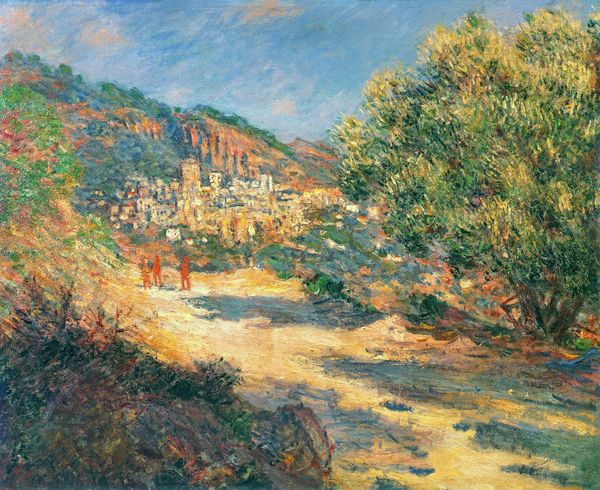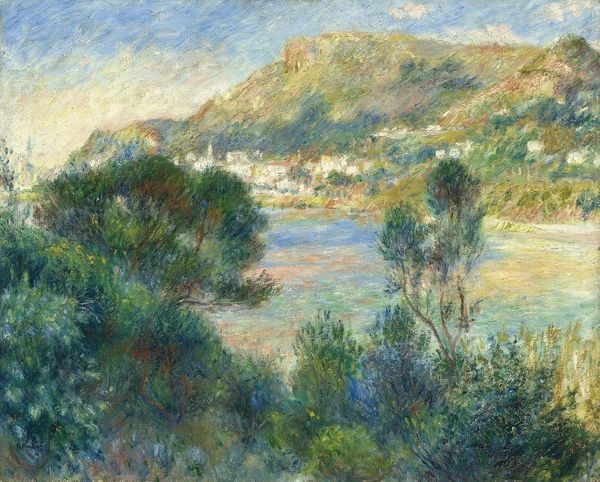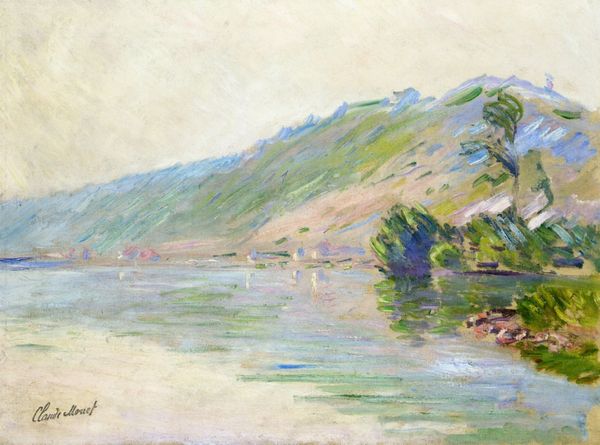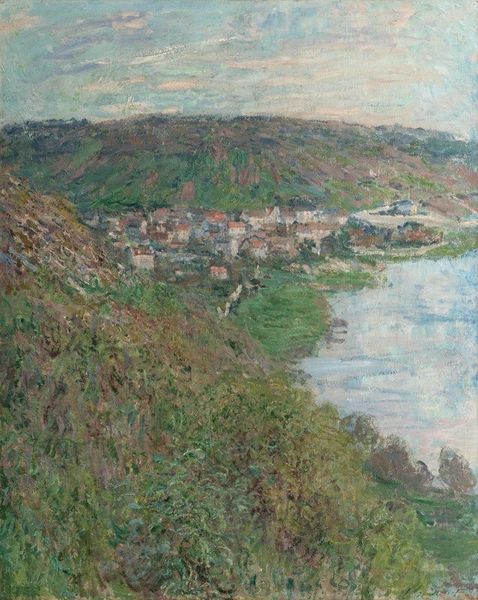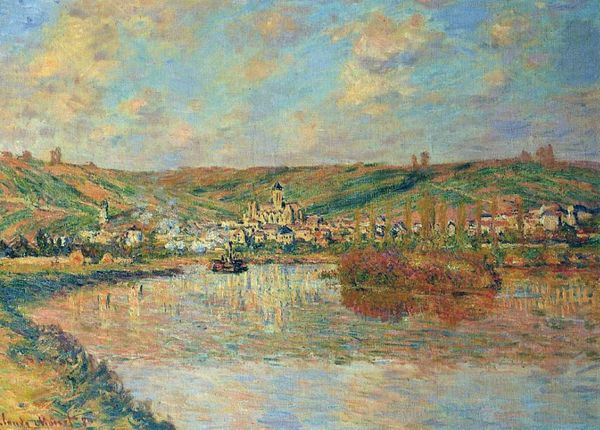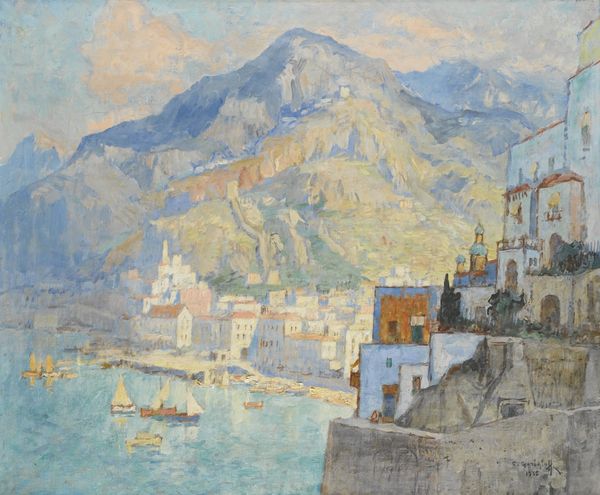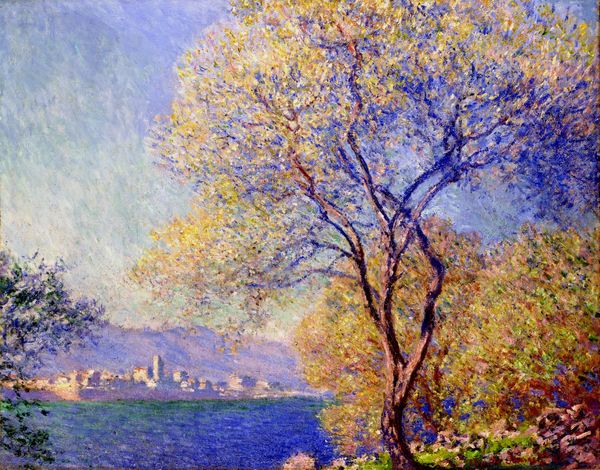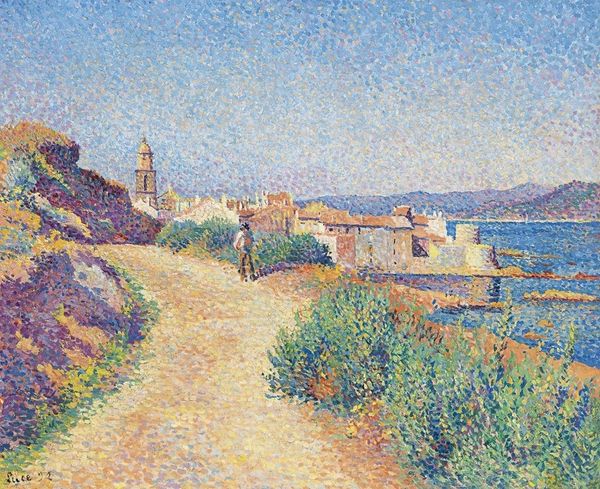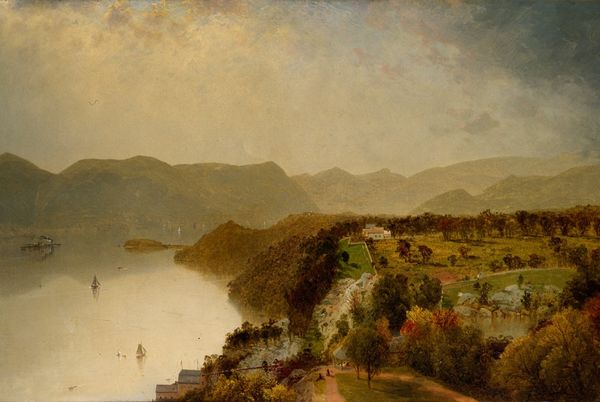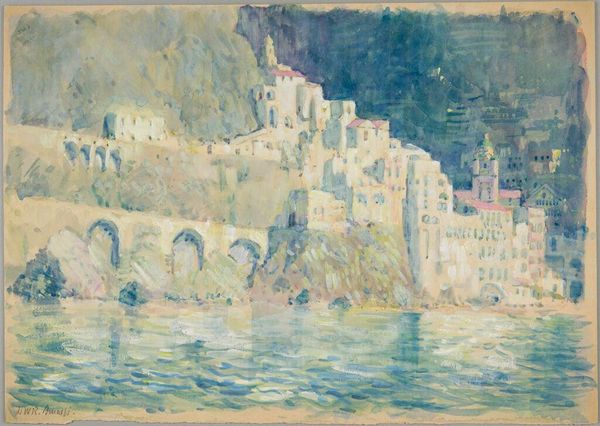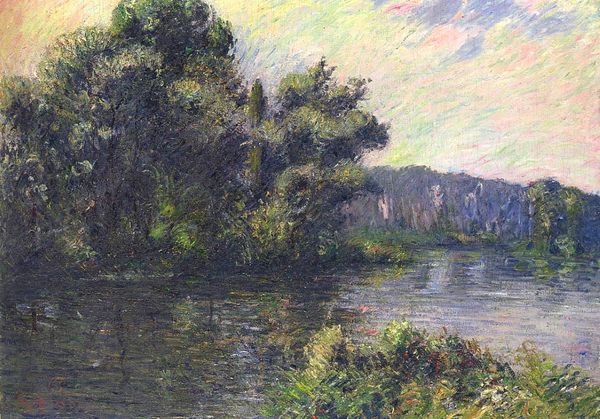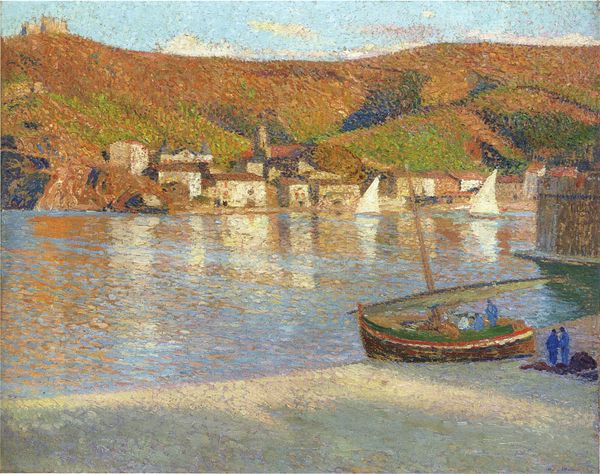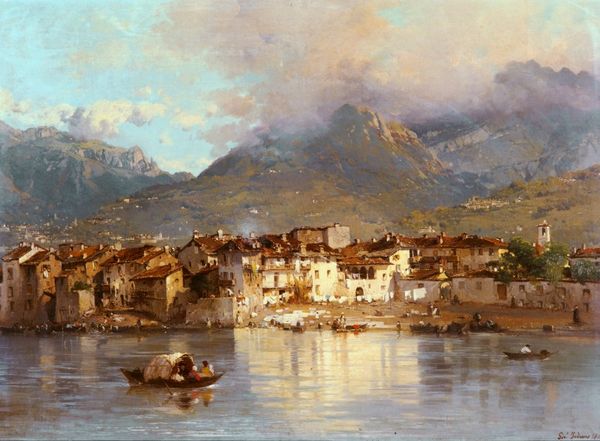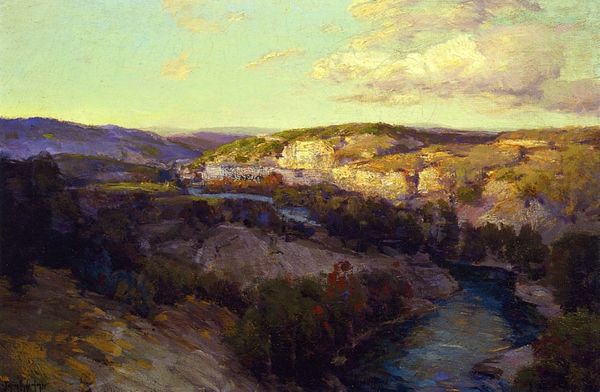
painting, plein-air, oil-paint
painting
impressionism
plein-air
oil-paint
landscape
impressionist landscape
nature
cityscape
Copyright: Public domain
Curator: Here we have Claude Monet’s "Monte Carlo Seen from Roquebrune," painted in 1884. Editor: My first impression is of incredible light and airiness, despite the density of the foliage in the foreground. The blues and greens are just dazzling, a real study in texture and vibrancy. Curator: Absolutely. The composition, though seemingly simple—foreground foliage framing a distant city and mountain range—speaks volumes about power and perspective. Think about the history of Monte Carlo itself. By 1884, it was already a site of tremendous wealth disparity. Monet, painting from a distance, aestheticizes that division. Editor: I see what you mean. There's a certain detachment implied. But, equally, look at how the brushstrokes themselves operate. Notice the short, broken strokes building form, how the color creates a shimmering effect that unifies the various elements, the cool tones of the water offsetting the warmth of the city. This is pure Impressionism, reducing the scene to pure sensation. Curator: Precisely, Monet aestheticizes capitalism through impressionistic methods, in a way typical for this time period, without confronting that tension. His vantage point mirrors the gaze of the rising bourgeoisie looking down upon the laboring classes. Editor: Perhaps, but to dwell only on social commentary is to diminish Monet’s technical achievement here. The use of complementary colors, the way the light refracts on the water... it's a masterful rendering of natural effects. Even that "detachment" you mentioned can be seen as an artistic choice emphasizing the fleeting nature of perception, of a moment captured. Curator: I acknowledge Monet’s technical skill. However, appreciating art also demands a recognition of social conditions, power structures, and inequalities in order to generate complete and layered insights. It's more than the sum of its painterly parts. Editor: I agree in theory, but looking purely at the brushwork here, you understand how Monet transformed the conventions of landscape painting. A radical shift in visual language—which is, itself, impactful. Curator: A worthwhile exchange on interpreting Impressionism! Editor: Indeed, quite revealing, offering us a deeper look into Monte Carlo!
Comments
No comments
Be the first to comment and join the conversation on the ultimate creative platform.
